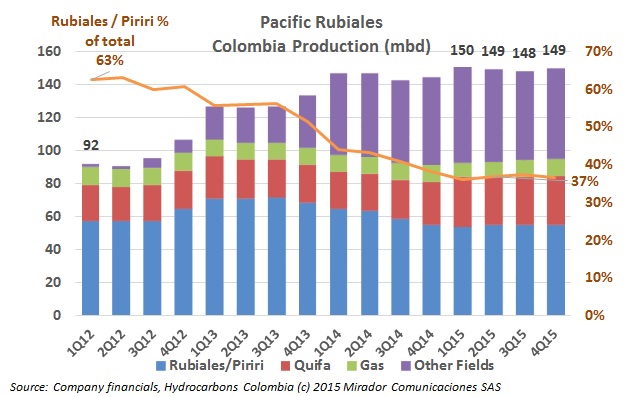A recent report from the Chamber of Oil Goods and Services (Campetrol) calls attention to the fact only one of every four drills in Colombia were in use in Colombia, and urged the government to do more to stimulate exploration.
A letter submitted to congress from the Finance Ministry (MinHacienda) detailing the government’s stake in Ecopetrol (NYSE:EC) and another 29 state owned firms sparked alarms form the recently launched “United for Ecopetrol” as proof the government plans to privatize the NOC. The ministry said it is a routine and legally mandated letter submitted each year.
Unwavered by a formal decision to suspend the modernization of the Barrancabermeja Refinery by Ecopetrol (NYSE:EC), city authorities and unions continue to call for the project. The refinery management has denied rumors that it is currently unsafe and defended the NOC’s priorities.
The Inspector General Alejandro Ordóñez said that his office will start a disciplinary investigation into officials involved in the shortage of electrical energy and natural gas.
The amount of Foreign Direct Investment (FDI) has fallen with oil and mineral prices, but data from the central bank suggests that other sectors have been able to increase their share and volume of investment.
The number of registered patents in Colombia, an area where it has led many other regional producers, has fallen off since the start of the oil price crisis. The Chamber of Oil Goods and Services (Campetrol) warns that this will make the country less competitive in the near future.

Security incidents jumped sharply last week but as has been the case lately, the results felt worse qualitatively than quantitatively.
During a three hour meeting in the presidential Palace, the Colombian Petroleum Association (ACP) presented a series of measures to President Juan Manuel Santos, which would lighten the fiscal load on the industry and review transportation costs, to boost the oil & gas industry.
The 19th Congress of the Colombian Natural Gas Association (Naturgas) provided the venue for a debate on the future of the natural gas industry and gas supply, with Naturgas assuring current problems are not a larger trend, while the Colombian Petroleum Association brought up concerns on Colombia’s self-sufficiency.

Pacific Exploration & Production (TSX:PRE) said that it grew production in 2015 but, like everyone else in the industry, impairment charges led it to post a loss of US$5.462B. A report in US financial media that the firm is reviewing buyer proposals has also fueled speculation on its future.